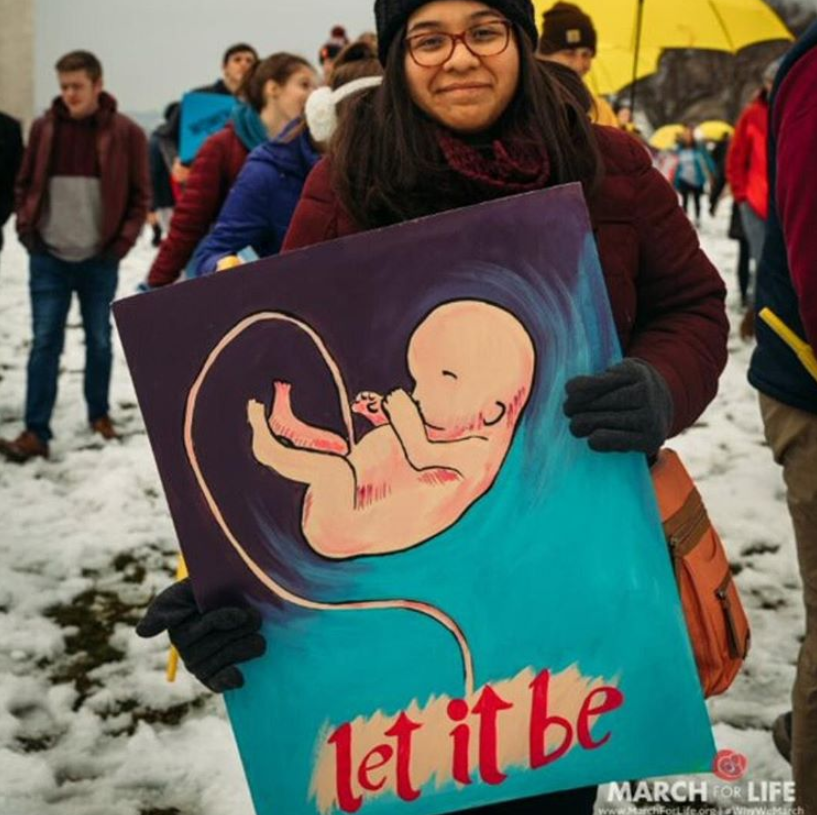Opposing abortion is not about controlling adults; it’s about protecting children.
Pro-choice people accuse pro-lifers of insincerity and hypocrisy.
Pro-lifers oppose abortion because we believe abortion kills morally valuable human beings. This is the core premise of the pro-life position. For many people, this central tenet inspires us to spend a lot of time, energy, and resources trying to change our culture and laws so that abortion is no longer accepted. It is a huge aspect of our lives: heartbreak, hope, tenacity, exhaustion, all trying to stop a grave, pervasive human rights violation.
With that backdrop, it’s interesting to watch abortion advocates spend so much energy attempting to prove our “real” motivations. Specifically they try to show (1a) we don’t truly believe abortion kills valuable human beings and/or (1b) we don’t really care if abortion kills valuable human beings, and then (2) our “real” motivation is something more nefarious. Popular pro-choice theories include the ideas that we hate women, want to control women, hate sex, want to control people’s sex lives, want to enforce a religiously motivated regressive view of gender roles, etc.
Where do these accusations come from?
I guess I sort of get the motivations here. It’s simpler and more satisfying to reduce ideological opponents to unflattering stereotypes than it is to grapple with complex human beings bringing to bear different knowledge, experience, and priorities on multi-faceted social issues. The desire to oversimplify isn’t specific to pro-choicers or to the abortion debate.
Additionally, most pro-choice people sincerely do not believe that embryos and fetuses are valuable human beings. They disbelieve it to such a great extent that they struggle to accept anyone genuinely disagrees.
And finally, I can’t go so far as to say there is zero evidence for pro-life hypocrisy or insincerity. At least at some points, all people are inconsistent, irrational, and hypocritical. And at least some people are mean-spirited and have perverse incentives. These problems aren’t specific to the abortion debate, but will inevitably apply to it at least some of the time.
And when such problems arise among pro-lifers, pro-choicers can point to these real examples as evidence of our “real motivations”: the politician paying only lip service to the cause and only around election time, the religious school official barring a pregnant student from graduation ceremonies, and the men and women who panic when faced with unintended pregnancies.
“Real motivations” accusations require a lot of confirmation bias.
In my quieter moments, I can sympathize a little with the very human motivation to vilify our opponents and with the pro-choicers’ points that there are inconsistent or hypocritical people on my side. Still, though, overall the “real motivations” arguments are just an exercise in intense confirmation bias. This is clear in a couple ways.
First, the “real motivations” arguments often require non-falsifiable theories.
For example:
Q: If the pro-life movement is primarily motivated by misogyny, why are women historically just as likely as men to oppose abortion?
A: Because they’re internalized misogynists.
Q: If the pro-life movement is about enforcing religious norms, why are there non-religious and even atheist people opposed to abortion?
A: They’re secretly or unconsciously Christian.
Q: If the pro-life movement is about right-wing authoritarianism, why are there progressives opposed to abortion (including approximately one fourth of Democrats)?
A: They’re not really progressives. They’re lying.
And so on.
Second, while there is evidence of pro-life hypocrisy, there is also considerable evidence of sincerity.
Consider the pro-life people staffing, volunteering with, and donating to thousands of pregnancy resource centers; the sidewalk counselors standing in freezing weather getting yelled at and worse; the people losing friends, family, sometimes their jobs for speaking up; the activists prepared to be arrested for nonviolent direct action; the loss parents who grieve their miscarriages; the women who carry, birth, and care for their children in traumatic circumstances.
You don’t have to agree with our value systems or philosophical premises to recognize that this behavior is poorly explained by hatred or control. We’re willing to fight and to sacrifice because we recognize embryos and fetuses as our valuable children, worthy of a right to live.





Leave a Reply
Want to join the discussion?Feel free to contribute!